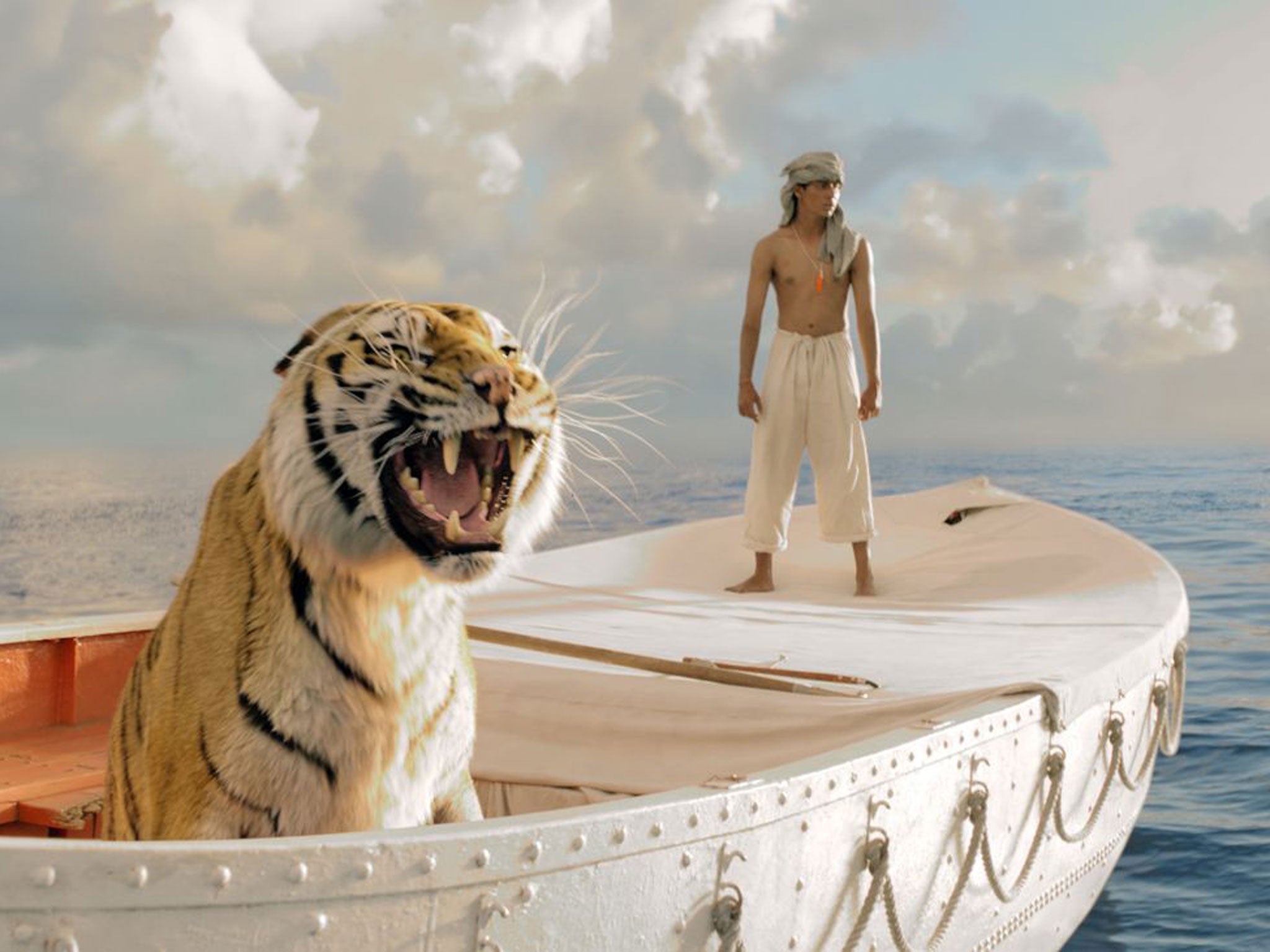Director of Canadian zoo that supplied animals for Hollywood movies quits amid claims of animal cruelty
Michael Hackenberger has stepped down as director of Bowmanville Zoo which has provided animals for films including the Oscar-winning Life of Pi

Support truly
independent journalism
Our mission is to deliver unbiased, fact-based reporting that holds power to account and exposes the truth.
Whether $5 or $50, every contribution counts.
Support us to deliver journalism without an agenda.

Louise Thomas
Editor
A renowned Canadian zoo keeper who supplied several animals to celebrated Hollywood movies faces criminal charges after a video emerged of him allegedly whipping a Siberian tiger.
Michael Hackenberger, the owner of the Bowmanville Zoo, near Toronto, prepared Jonas, a Bengal tiger, for the role of a lifetime in the Oscar-winning 2012 movie Life of Pi. He also provided animals for films including the North Korea-themed 2014 comedy The Interview, and for Adam Sandler’s 1995 hit Billy Madison, which featured an elephant from Bownmanville.
This week, the Ontario Society for the Prevention of Cruelty to Animals (SPCA) formally filed criminal charges against Mr Hackenberger for five counts of animal cruelty related to a December 2015 video, which purported to show him swearing at a young Siberian tiger and whipping it 19 times during a training session for a future performance.
The one-and-a-half-minute video was obtained and released online by animal rights group People for the Ethical Treatment of Animals (PETA). During the video itself, Mr Hackenberger says: “If we’d been running a videotape the whole time you were here, and you did a 45-second montage of the times I struck this animal, PETA would burn this place to the ground.”
In a statement, PETA president, Ingrid Newkirk, said the group was “pleased” that charges had been brought against Mr Hackenberger, adding: “We hope that this case will result in an end to his torment of animals made to suffer for human entertainment.”
Mr Hackenberger has accused PETA of fabricating its footage, and denied the group’s claims that he struck the animal with the whip 19 times, and that in fact he was mostly whipping the air and the ground around the tiger. He said he had hit the tiger just three times in total, including once striking its paw as it made to claw his fellow trainer.
The zoo keeper nonetheless announced his resignation via the zoo’s Facebook page, which also proclaims that Bowmanville is the oldest zoo in North America. “While I am not guilty of the charges against me, the welfare of the zoo and the animals that it serves has always been my principal concern,” Mr Hackenberger wrote. “To this end I am standing down from the position of Director of Bowmanville Zoo until such time as this legal matter is resolved.”
The Ontario SPCA insisted it had only filed the charges after having spent “significant time reviewing the facility and interviewing all involved.” If found guilty, Mr Hackenberger faces a maximum penalty of two years in jail and a CA$66,000 fine.
A 2013 investigation by the Hollywood Reporter also found that a different tiger had come close to drowning during the filming of Life of Pi, according to monitors with the American Humane Association.
Twentieth Century Fox, the studio behind Life of Pi, denied that King the tiger had come close to death during the production of Ang Lee's 3D spectacular. “The tiger, King, was never harmed and did not 'nearly drown' during the production,” a spokesman told the Hollywood Reporter. “We take on-set safety very seriously and take every precaution necessary to ensure that no one – animal or human – is harmed during the production of our films.”
For much of the film, however, the tiger was portrayed using computer-generated visual effects. Indeed, recent Hollywood productions have increasingly turned away from real animal performers to CGI, notably the new live-action remake of Disney’s The Jungle Book. That film’s director, Jon Favreau, was this month awarded PETA’s Innovation in Film prize for, the organisation said, “making the compassionate decision to use stunning cruelty-free CGI technology” to animate its animal characters.
Subscribe to Independent Premium to bookmark this article
Want to bookmark your favourite articles and stories to read or reference later? Start your Independent Premium subscription today.
Join our commenting forum
Join thought-provoking conversations, follow other Independent readers and see their replies
Comments